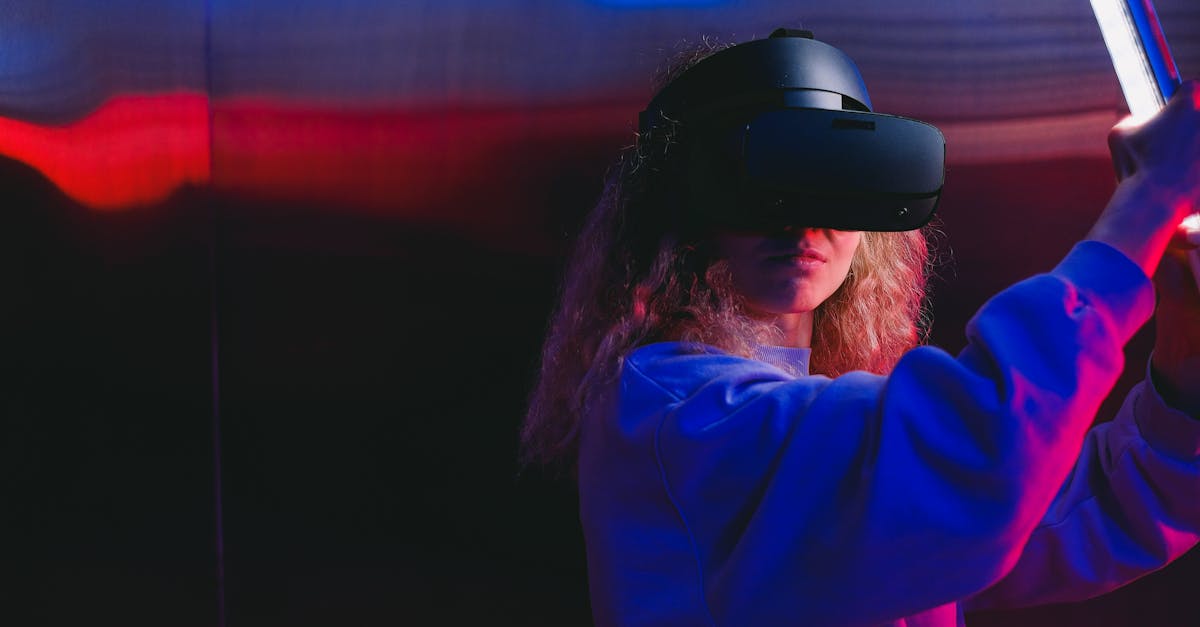Innovative Inspirations in Arts Entertainment
Introduction
In a rapidly evolving world, arts and entertainment stand out as beacons of creativity and innovation that captivate diverse audiences across the globe. From visual masterpieces to storytelling that pushes boundaries, the sector thrives on imaginative thinking. The fusion of technology with traditional art forms invites fresh perspectives and narratives that redefine how stories are told and experienced. Backed by expansive budgets and cutting-edge technology, artists and creators continue to challenge the status quo. But what exactly are the sources of such transformative inspiration? From virtual reality experiences to employing artificial intelligence, a myriad of novel ideas shape our current entertainment landscape.
Advertisement
Augmented Reality in Visual Arts
Augmented Reality (AR) has emerged as a revolutionary tool for artists, merging the digital with the real world. Artists like Olafur Eliasson use AR to create immersive exhibitions where viewers interact with digital objects in physical spaces. This blending of reality allows for a reimagining of traditional canvases, making the viewer an active participant. Such experiences erase the boundaries between audience and creator, offering a dynamic exploration of art. Today, museums, galleries, and public installations are exploring AR's potential as it continues to inspire future generations of artists. As AR technology becomes more accessible, its influence will likely grow exponentially.
Advertisement
Storytelling Through Virtual Reality
Virtual Reality (VR) has redefined how audiences perceive storytelling, offering an immersive experience unattainable in traditional media. Filmmakers and creators use VR to craft environments where audiences dive directly into the narrative. This technology changes the way stories are told, especially in genres that thrive on atmosphere, like horror and sci-fi. Projects such as "The Under Presents" provide interactive theatrical experiences, combining elements of gaming, cinema, and live performance. As VR technology enhances in resolution and accessibility, its role in revolutionizing entertainment is set to expand, providing deeper emotional connections and transformative storytelling experiences.
Advertisement
The Rise of AI in Music
Artificial Intelligence (AI) is reshaping the music industry, targeting everything from composition to performance. AI algorithms generate music by analyzing past compositions, learning from patterns, and creating original pieces. Prominent artists collaborate with AI to introduce new sounds and genres not previously explored. This collaboration between humans and machines results in innovative soundscapes, pushing the boundaries of what's musically possible. While there are debates about AI’s creative potential, it's undeniable that AI's role in music amplifies human creativity, offering new avenues for musicians and listeners alike.
Advertisement
Interactive Film and Television
Interactivity is an emerging trend in film and television, offering viewers a role in storytelling. Interactive films like "Black Mirror: Bandersnatch" innovatively allow audiences to control the narrative's path. This form of storytelling provides multiple outcomes and embraces unpredictability, a shift from linear narratives. By engaging the viewer directly, creators build a stronger connection with their audience, making stories more personal. As technology evolves and software tools become more sophisticated, interactive storytelling could eventually set a new standard for future visual media narratives.
Advertisement
Environmental Art and Sustainability
With growing awareness of climate change, environmental art has become a powerful medium to inspire sustainable practices. Artists globally are creating works that reflect visions for a more sustainable world. These installations often use recycled materials and renewable resources, celebrating ecological balance. Creators like Agnes Denes turn landscapes into art, prompting conversations about environmental stewardship and offering new insights into humanity’s relationship with nature. In entertainment, film and music festivals are greening operations, reinforcing the idea that sustainability can be an inspiration rather than an obstacle.
Advertisement
Hybrid Performances and Technology
Artists are exploring hybrid performances that merge traditional artistry with cutting-edge technology. From dance companies integrating motion capture to theater productions utilizing real-time projections, the artistic potential is limitless. These hybrid forms unite disparate art disciplines, creating multidisciplinary performances that offer a comprehensive sensory experience. For instance, artists like Robert Lepage demonstrate how technology-enhanced performances introduce novel narratives by allowing stories to interact seamlessly with set elements. This blending of art forms heralds a symbiotic relationship between technology and creativity, creating groundbreaking artistic expressions.
Advertisement
Impact of Social Media on Entertainment
Social media platforms are crucial in shaping entertainment trends by facilitating direct interaction between creators and audiences. Platforms like TikTok and Instagram elevate emerging artists, providing immediate access to global audiences. Creators share snippets of their work directly, gauging public opinion, and instantly refining content based on feedback. This rapid dissemination of ideas accelerates artistic exchange, inspiring collaborations across geographical borders. Moreover, social media enables fans to participate in the creative process, sharing insights and contributing to more relatable and dynamic content.
Advertisement
The Influence of Video Gaming
The gaming industry has emerged as a leading source of innovation in storytelling, animation, and technology. Modern games combine compelling narratives with cutting-edge graphics and real-time physics, creating worlds that captivate players for hours. The success of story-driven games like "The Last of Us" and "Cyberpunk 2077" shows how gaming influences other entertainment forms. Techniques developed for gaming are repurposed in film and television, showcasing the industry's vast creative potential. Additionally, gaming communities foster interactive relationships between developers and players, inspiring ever-evolving and immersive entertainment forms.
Advertisement
Conclusion
As technology reshapes the arts and entertainment landscape, it opens doors to endless creative opportunities. Innovations like AR, VR, and AI breathe new life into traditional forms, keeping audiences engaged and enthralled. From interactive storytelling to eco-conscious art, these innovations foster deeper emotional connections and elevate the cultural dialogue. The fusion of creativity and technology continues to inspire both creators and audiences, driving the evolution of entertainment. As we look to the future, it becomes evident that innovation will remain the cornerstone of artistic expression, promising a vibrant and dynamic world for artists and enthusiasts alike.
Advertisement








